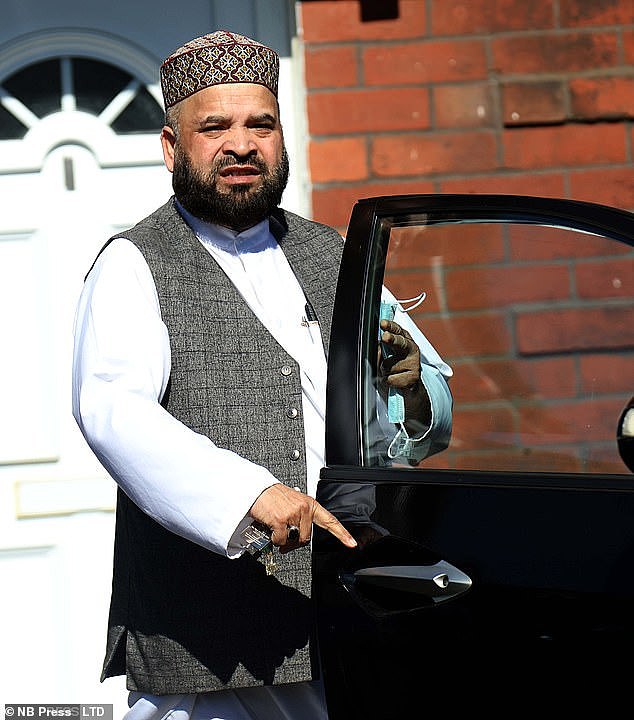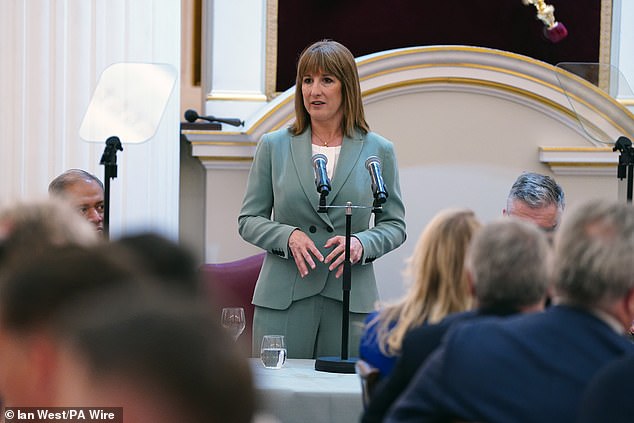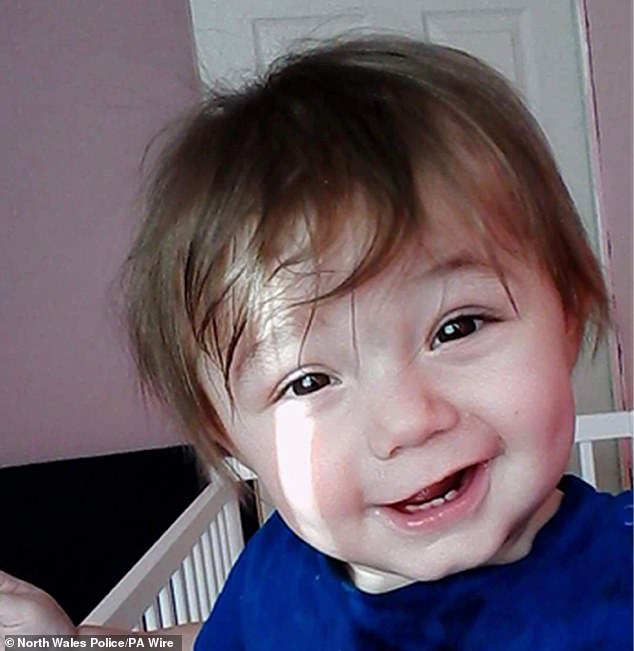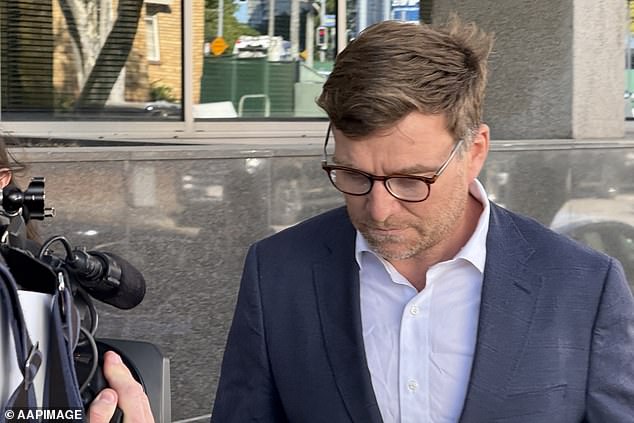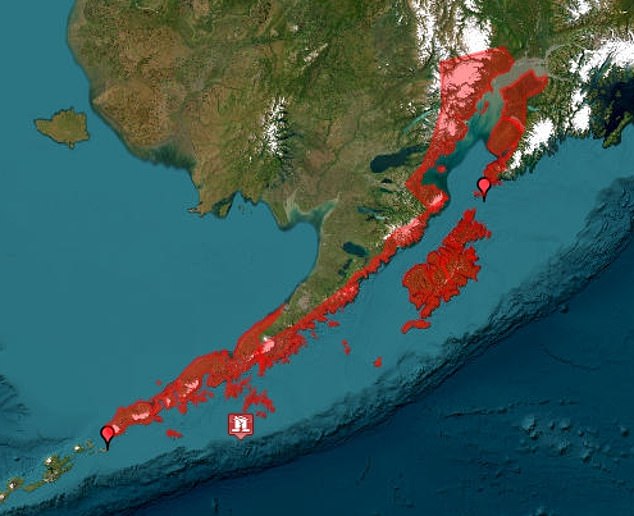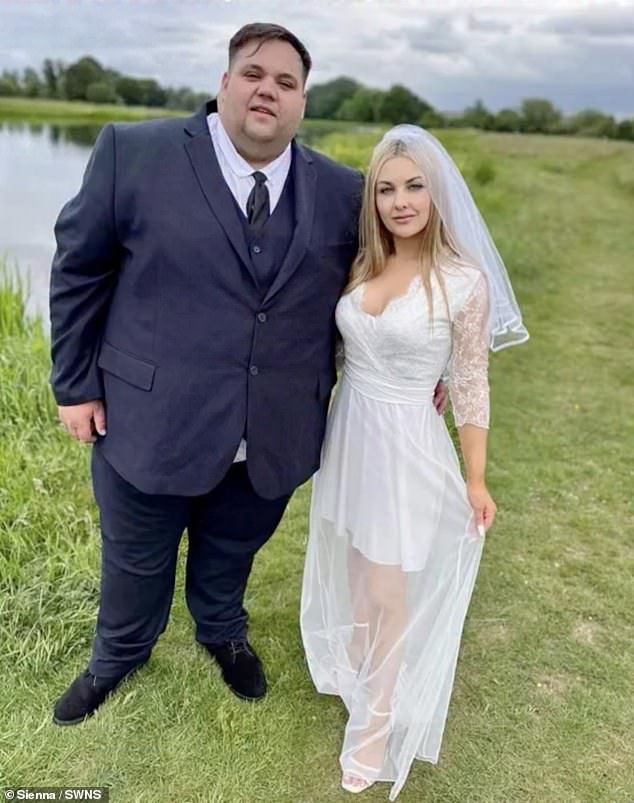A former royal aide and SAS officer has backed the Mail’s campaign to protect Northern Ireland veterans from legal witch hunts.
Jamie Lowther-Pinkerton, a godfather to Prince George, joined the call for an end to so-called lawfare that dates back to the Troubles.
This week, the Mail launched the Stop The SAS Betrayal campaign to protect troops from being hounded by the threat of legal action decades after they served.
This newspaper is demanding that ministers reverse their bid to repeal clauses in the Legacy Act that provide protections for Northern Ireland veterans, or produce a proper alternative.
At the centre of the campaign is a case involving 12 SAS soldiers whose killing of four IRA terrorists in 1992 has been found ‘unlawful’ by a coroner. They could face murder charges.
Last night, a petition backing the soldiers had gained more than 155,000 signatures. A parliamentary debate on the issue is scheduled for July 14.
Mr Lowther-Pinkerton, a former SAS squadron commander and principal private secretary to Princes William and Harry, and latterly the Duchess of Cambridge, said such cases put the regiment’s future in jeopardy.
He added: ‘This is an abhorrent injustice. Though bound by the SAS strict code of discretion, I know from my experience SAS soldiers have proved they can meet any threat – except, perhaps, the one they face from lawfare.

Jamie Lowther-Pinkerton, pictured in 2005 with a younger Prince William, has joined the call for an end to so-called lawfare that dates back to the Troubles

The former SAS squadron commander and principal private secretary to Princes William and Harry, and latterly the Duchess of Cambridge, said such cases put the regiment’s future in jeopardy
‘It seems to me the British have a decision to make. Either they move to protect their SAS soldiers – as they have protected them – or they do nothing and lose the SAS.
‘In capability and character, this is a strategic asset no other country has and which – any day now – the British people might sorely need.
‘This is why I wholeheartedly support the Daily Mail’s campaign to protect our veterans.’
Mr Lowther-Pinkerton, who rarely speaks publicly due to his previous royal roles, has joined forces with other SAS commanders and MPs such as Sir David Davis and Mark Francois, as well as former veterans minister Johnny Mercer.
The father-of-four was a British Army officer for 20 years, serving in Northern Ireland, the Balkans and Iraq.
His first Royal appointment was as an equerry to the Queen Mother from 1984 to 1986.
His intervention came as the Prime Minister’s veterans’ tsar branded plans to amend the Legacy Act ‘immoral’ and ‘two-tier justice’.
David Johnstone, the Veterans’ Commissioner for Northern Ireland, said up to 70 former soldiers could be forced into the dock as a result.

This newspaper is demanding that ministers reverse their bid to repeal clauses in the Legacy Act that provide protections for Northern Ireland veterans, or produce a proper alternative
He told The Daily Telegraph: ‘It’s lopsided, it’s two-tier justice, and if the Government thinks that they can reverse this and there not be push-back from veterans, well, I think they’re in for a surprise, because veterans are just not going to stand for it.
‘The pressure is on that this Government should not make reversals that will put soldiers in the dock for doing their jobs.
‘The then-Labour government came to the society in Northern Ireland, and said, ‘Look, in order to have peace, you must accept terrorists being let out of jail… royal pardons, effective amnesty for terrorists’.
‘Then there was the decommissioning of weapons, which meant that the evidence that could have put terrorists in prison was destroyed. So society was asked to accept all of those things.
‘And yet, 27 years on, we have this ongoing vexatious lawfare which is targeting and demonising those who wore the uniform.’
The Mail can also reveal that SAS veterans facing a possible criminal probe over their killing of four IRA terrorists in February 1992 are to stage a re-enactment.
The reconstruction of events at Clonoe, County Tyrone, is part of a bid by the Ministry of Defence to instigate a judicial review of the verdict at Northern Ireland Coroner’s Court and have the ruling overturned.
Coroner Mr Justice Humphreys found the soldiers’ use of force was excessive, even though the terrorists had a heavy machine gun, a medium machine gun and AK47 assault rifles.

An inquest ruled earlier this year that a Special Air Service squad used unjustified force to kill four IRA terrorists who had used a mounted machine gun to shoot up a police station in 1992 (pictured is the truck with its mounted machine gun, rear)

Peter Clancy, Kevin Barry O’Donnell and Sean O ‘Farrell (pictured left to right) were shot dead by SAS soldiers in 1992. They were all members of the IRA and had used a machine gun mounted on a lorry to shoot up a police station
Former SAS Regimental Sergeant Major (RSM) George Simm said: ‘The reconstruction aims to provide a true account of what happened to balance the judge’s version of events.
‘The team as a whole are clear in their minds the IRA fired first. Some of the soldiers observed muzzle flashes through their night sights.
‘There are also accounts of thumps into the ground alongside where they were hiding.
‘Forensics say there were marks on the bushes and branches. And, one of the team got hit in the face. There was no ‘subject-matter expert’ [expert witness] at the hearing as the judge assumed his version of events was correct.
‘He gave the appearance of choosing evidence to suit his narrative, rather than looking at the evidence objectively.’
Following the coroner’s decision earlier this year, files have been passed to Northern Ireland’s Director of Public Prosecutions, which could lead to some of the SAS veterans being charged.
The Legacy Act was introduced by then veterans minister Mr Mercer in 2023 to stop Troubles veterans being prosecuted decades after the conflict.
Labour’s manifesto last year included a pledge to repeal it.

British soldiers seen on guard after IRA terrorists attacked the Coalisland police station in 1992

British soldiers were said to be constantly looking over their shoulders while based in Northern Ireland and that it was an ‘extremely dangerous place’. Pictured is a British Paratrooper detaining a youth during riots on Bloody Sunday in 1972
The Act was found to breach the European Convention on Human Rights, which places an investigative duty on the state where its agents may have caused death or injury.
Northern Ireland Secretary Hilary Benn has defended the move, telling the Mail that any government would have to repeal unlawful legislation.
He said the Government was ‘engaging with veterans and all interested parties over future legislation, and we will ensure there are far better protections in place’.
The Ministry of Defence confirmed that it had lodged an application seeking permission to judicially review the coroner’s recent findings and verdict in the Clonoe inquest’.
A defence source said: ‘We consider that the findings and verdict do not properly reflect the context of the incident nor the challenging circumstances in which members of the Armed Forces served in Northern Ireland.
‘The MoD is funding the veterans in question to seek judicial review and providing them with welfare support.’
Protect our courageous SAS soldiers or we will lose them forever
by Jamie Lowther-Pinkerton
Last summer I went back to Hereford for the funeral of a friend from 30 years ago. He had died climbing, which is what he loved most, apart from his family, his friends and his country.
Other than a mesmerising twinkle in the eye and dark good looks, he didn’t stand out as anything special on a crowded street. For he was a humble man: Kind, selfless and quietly confident. He had a drive within him to help others, particularly the vulnerable, the picked-upon and those living in fear of their lives.
Normal traits, in fact, for a soldier of the Special Air Service.
So much has been written about the SAS, so many films made, so many reality-TV botch-ups of our actions and even our selection processes. Apart from one or two post-war accounts written by early veterans, I recognise none of the recent fictional stereotypes in my friend the climber or anyone else I came across in my eight years in the regiment.
At the wake after the funeral in Hereford, the regiment’s home, I was buttonholed by George Simm, my Squadron Sergeant Major, Regimental Sergeant Major and benevolent scourge. Almost all the old friends I met with him were being persecuted for their brave actions in Northern Ireland many decades ago.
They were phlegmatic, facing the storm as they’ve faced it before, but their courage could not conceal the sense of betrayal they felt. I left angry.
It is an abhorrent injustice. Though bound by the SAS strict code of discretion, I can at least use the four unchanging principles of our founder David Stirling to tell you the reality of what I saw during my time.
First, the principle that seemed so effortless to everyone but me (though I hope others may have felt the same): ‘The unrelenting pursuit of excellence.’

‘Almost all the old friends I met with George Simm are being persecuted for their brave actions in Northern Ireland many decades ago,’ writes JAMIE LOWTHER-PINKERTON

‘So much has been written about the SAS, so many films made, so many reality-TV botch-ups of our actions and even our selection processes’ (Mr Lowther-Pinkerton pictured in 2015)
I have never known – nor will I again – such consummate professionalism as in the SAS.
Within its ranks are some of the finest soldiers in the world, jacks-of-all-trades who have proved they can meet any threat – except perhaps the one they now face from lawfare, the threat from within.
Next came ‘the highest standards of self-discipline’. Physical and organisational, but especially moral.
An oft-quoted line is that we would never transgress morally on operations because to do so would be to lower ourselves to the base level of our enemies, blowing our credibility and decimating our ability to achieve our mission.
While this may be true, it is secondary. What guides SAS soldiers is the urge to do right by the innocent folk we have been sent to protect – as in Northern Ireland, where the SAS arrested more terrorists than they ever killed – and to do right in the eyes of our comrades and the British people.
That might sound overly idealistic, pompous even, but it is how many of us felt. Some of us in the regiment did not even vote in general elections. This was not idleness and certainly not some petulant statement. It was because we had implicit faith in our system of parliamentary democracy, and in what Britain stood for in the world.
To have voted would, in some way, have compromised that. We were there to do the will of the Government – any government – and not take party-political sides. That, of course, was when we believed the Government had our backs.
Stirling insisted upon ‘a classless but not a rank-less society’, based on pure merit and no social preferment. We all did the same selection – officers and men – which meant that we had complete faith in one another.

SAS recruits pictured in 1981. ‘Apart from one or two post-war accounts written by early veterans, I recognise none of the recent fictional stereotypes in my friend the climber or anyone else I came across’

‘Though bound by the SAS strict code of discretion, I can at least use the four unchanging principles of our founder David Stirling, pictured, to tell you the reality of what I saw’
To reap the benefits of an egalitarian structure such as the SAS, as with any other successful human enterprise, still requires leadership and a rank structure. But, as a commander in the regiment, what I learnt very early on was that I was not always the leader.
To have had me telling the climber what to do on a cliff-face would have been, literally, sheer lunacy. He was the leader then… and so on.
Finally, Stirling recognised that hubris was the surest route to ruin.
So, his quartet closes with a call for ‘humility and humour’. Recognising that success in the past does not guarantee success for the future is often the most difficult of the principles to obey. But it is perhaps the most critical. The urgency with which SAS soldiers fought the temptation to be complacent and strove to remain ahead of our country’s enemies simply astounded me. It still does.
While an unforgivable conceit, I am going to add a fifth principle: ‘Decency’.
Three of my children have SAS god-fathers. They weren’t picked for their extraordinary skills – hardly transferable – but because the moral compass of each is welded at true north. Enough said.
It seems to me that the British have a decision to make. Either we move to protect our SAS soldiers – as they have protected us – or we do nothing and lose the SAS.
In capability and character, this is a strategic asset that no other country has and which – any day now – the British people might sorely need.
